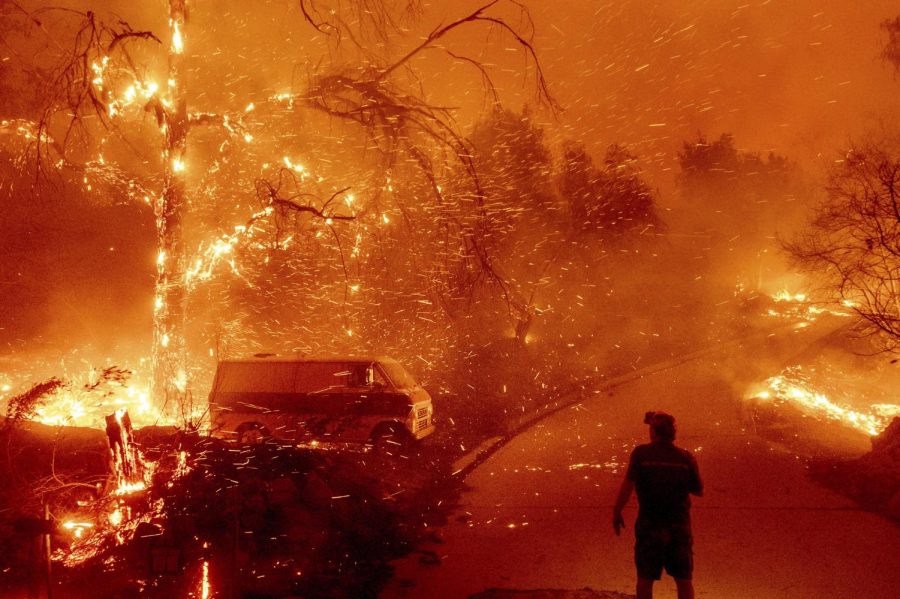If you don’t think climate change is real, read this book
Bruce McDougal watches flames consume his property on Dec. 3, 2020 as the Bond Fire burns through the Silverado community in Orange County, Calif.
Apr 29, 2021
Kim Stanley Robinson’s expansive novel “The Ministry for the Future” presents a bold vision for both the future of earth and the future of the science fiction genre. Robinson blends fiction and nonfiction in an impassioned argument for a fundamental reorientation of our relationship with the planet. The book details a fictional account of climate change’s effect on the next few decades of human history.
The novel opens with protagonist Frank May’s powerful narrative of surviving a deadly heat wave in India in the fictional year 2025. Robinson gruesomely describes an Indian town slowly baked alive after the electric grid fails under extreme heat. The entire town seeks relief from the heat in a nearby lake, but the lake’s safety proves fleeting as the water quickly exceeds human body temperature. Millions die in the chaos.
Robinson intersperses narratives like this one with nonfiction essays explaining the real science informing his fictional future. His attention to science lends credibility to the story. The detailed explanation of the likelihood that a real catastrophic heat wave would play out entirely alters Frank’s account, shifting it from abstract fiction to a future reality. Reading about mass heat death with the knowledge that a similar fate is a very real possibility is deeply unnerving. It felt somewhat like prematurely reading my own obituary: a detailed account of how humanity might end.
A former doctoral student, Robinson is a master of using narrative to explore social science. His Mars Trilogy, a classic in so-called “hard science fiction,” grapples with themes of economics, political systems and human psychology. Robinson told Vox, “If you are getting to these deepest fundamental questions … I try to think about what the social sciences have told us about civilization.”
For instance, in “The Ministry for the Future”, Robinson describes the intricacies of a proposed currency specifically designed to reorient the economy away from burning carbon. Robinson’s creative solutions make for an ultimately utopian view of humanity’s fight against climate change. He describes feasible technological solutions that could reduce pollution and even carefully alter Earth’s climate to mitigate the damage already done.
Robinson’s unique format, coupled with his scientific accuracy, builds to a remarkably compelling call to action. His narrative form gives life to future generations, who will ultimately bear the consequences of our present actions. His scientific accuracy gives the story an air of realism, transcending fiction.
It is an important story — a deeply human story. It’s a story of us, of our actions and their consequences. It’s our inevitable future put to the page and made real. And the conclusion is obvious: We need change now, while it still counts.













